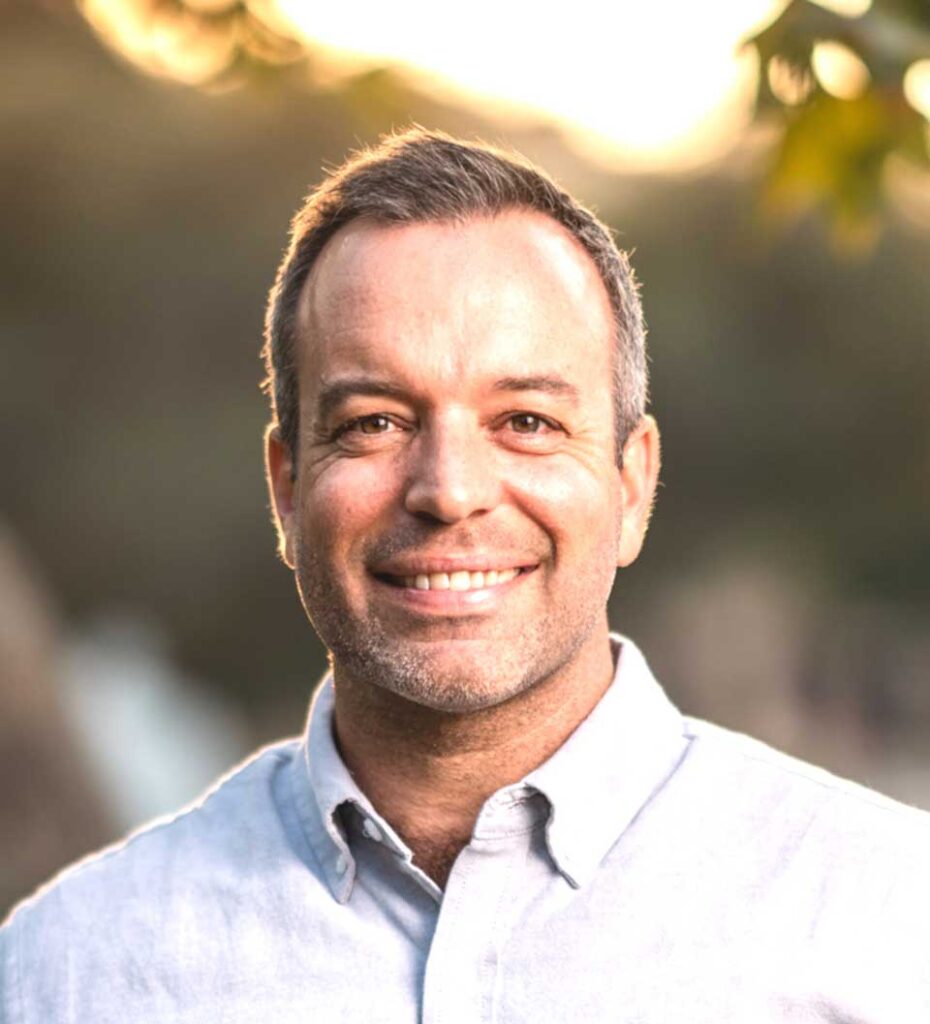
Summer 2022 Newsletter
Former Fellow is International Leader
in Studying RNA Molecules

Robert Spitale, Ph.D.
2011 Fellow Rob Spitale, Ph.D., is a chemical biologist with extensive training in genomics and cell biology. He is internationally recognized as a leader in the field of RNA structure and function and serves the Associate Director and Associate Dean of Research in the School of Pharmacy and Pharmaceutical Sciences at the University of California, Irvine, where he is also a full professor. The recipient of numerous prestigious awards, including the International Chemical Biology Society Rising Star Award in 2019, Rob conducted his postdoctoral research at Stanford University under the mentorship of Howard Chang.
The focus of Rob’s lab is understanding how RNA molecules control the flow of genetic information inside cells. One area of study is the workings of a class of RNA molecules, long non-coding RNAs (IncRNAs), that are not translated into proteins as is the norm. “You can think of IncRNAs as air traffic control towers; they tell cells what genes to turn on and off,” Rob explains. “Many neurological disorders are caused by dysfunctional RNA molecules. If we can understand what makes them dysfunctional, we can figure out ways to make them behave in a good way.”
Rob said his A.P. Giannini fellowship was a turning point in his career. When he had applied for other fellowships, he received feedback that his proposed project was too ambitious and that his background in chemistry was not aligned with a study of cell biology. Rob credits the Foundation for providing candidates the opportunity to interview in person and to talk about their work and answer questions. Rob is especially grateful to Dr. Calvin Kuo, a member of the Scientific Advisory Committee and a hematology researcher at Stanford, for coaching him prior to the interview and explaining what was most important to discuss during his interview.
“The [A.P. Giannini Foundation’s] Scientific Advisory Committee liked the fact that I wanted to do exploration that could be impactful,” Rob explains. “So much of scientific funding is focused on incremental progress, but the funding paradigm should shift to support more risk taking. Scientists should be encouraged to explore novel areas in the absence of preliminary data. And to bring new perspectives to a field, we should encourage scientists to work on something [in which] they don’t have training.”
To learn more about Rob’s work, visit his lab’s website or click here to access recent publications.
Fellow Reveals the Power of Fermented Foods
to Treat Inflammatory Disease

Sean Spencer, M.D., Ph.D.
The bacteria that live in our gut are collectively referred to as the microbiota. Increasing evidence suggests that our microbiota, when out of balance, can contribute to inflammation that leads to disease such as diabetes and heart disease. 2021 Fellow Sean Spencer, MD, PhD, is a gastroenterologist and researcher who studies how the foods we eat promote a healthy gut microbiota and benefit our immune system.
Sean is carrying out his postdoctoral research at Stanford University School of Medicine in the lab of Justin Sonnenburg, PhD, who studies how fermented foods such as yogurt and sauerkraut can have a positive effect on the microbiome and immune system. Sean is investigating which aspects of fermented foods confer the observed benefit, and he has found that the bacterial metabolites within fermented foods are responsible for most of the positive effect. This knowledge can lead to the development of therapeutics and enable health providers to make more precise dietary recommendations to their patients.
In his research, Sean has been pairing human trials with mice studies. Building off a clinical trial that received wide coverage, including in the New York Times, he is using mouse models to study specific disorders, such as peanut allergy and metabolic-associated fatty liver disease (MAFLD), and whether fermented foods may be able to treat the disorder. The next phase will be to design a clinical trial, informed by the mouse model, using fermented food metabolites.
“My career goal is to create an evidence base of which foods do what,” Sean explained. “How do we use specific foods to treat specific diseases?” To learn more about Sean’s research, click here.
And as a doctor, Sean seeks to convey his findings in a way that is tangible to patients. Sean recently presented at a conference put on by the Culinary Institute of America in partnership with the Harvard T.H. Chan School of Public Health, Healthy Kitchens, Healthy Lives. “I not only talk to my patients about the types of foods they should be eating, I tell them how to cook it and give them recipes based on their taste and preference.” Sean’s work is proving that the old adage, “We are what we eat,” has never been truer. Follow Sean on Twitter @seanpaulspencer.
Fellows’ Gathering Touts Benefits
of Twitter in Advancing Careers & Science

Twitter Logo
Since 2018, the A.P. Giannini Foundation has offered its fellows leadership and communications training in addition to stipend support. As part of this programming, Executive Coach Mari Sciabica and Journalist-in-Residence Jerry Kay organize virtual alumni/fellow gatherings on topics that are relevant to researchers’ work across disciplines and sectors. These gatherings are designed to foster community between fellows and alumni and to build upon the leadership and communication skills that are explored during the APG fellowship program.
A recent alumni/fellow gathering explored the many ways that Twitter can be used to advance careers and science more generally. The first presenter, Victor Nizet, M.D., a member of the Foundation’s Scientific Advisory Committee since 2008 and Professor and Vice Chair for Basic Research, Department of Pediatrics, and Professor of Pharmacy and Pharmaceutical Sciences at the University of California, San Diego, shared that he considers Twitter a great source of breaking science news. Victor uses Twitter to share his own research; to celebrate lab milestones; to support colleagues and friends when they publish articles or announce promotions; to advertise job opportunities and events; and to promote his institution more widely. “You have to be professionally networked to be successful,” he said. “Twitter is a tool for that.”
The second presenter, 2018 Fellow Sergey Stavisky, Ph.D., is an Assistant Professor in the Department of Neurological Surgery at University of California, Davis, where he co-directs the UC Davis Neuroprosthetics Lab. Sergey reiterated the importance of using Twitter to learn about relevant research and grant opportunities, to share papers and upcoming talks, and in recruiting. He added that Twitter can be a place to share resources and “little nuggets of wisdom for other scientists,” such as a helpful trick in using Adobe. “Providing this kind of information may encourage other Twitter users to follow you,” he explained. “Twitter may also facilitate connecting with people at conferences whom you follow or who follow you.”
You can follow Victor on Twitter @victornizet and Sergey @sergeydoestweet. The presentation is available here.